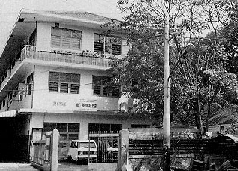By Djamester A. Simarmata, Jakarta Post
Most of Indonesia's fiscal problems are inherited from previous governments, especially from the Soeharto era. Off-budget hijinks were rampant during that period, as in the case of the foundations established by Soeharto, his family, his cronies and the military.
The fall of the Soeharto regime sparked new hope for improvement in the general welfare, stemming from better governance and better management of the country's economy as a whole. There were growing demands for transparency and good governance.
Soeharto's "one-man show" style was considered a barrier to good governance. The flow of information was very limited, especially in terms of government affairs. There were widespread cases of government expenditures not being documented in the state budget.
There was very little accountability and transparency, both on the revenue and the spending sides. There was a "dark side" of the state budget, where a significant proportion of government expenses and revenues went unrecorded.
Soeharto's methods of financing his various foundations were questionable. It was not even clear whether institutions such as the Supersemar foundation, Dakab, and others, were public or private.
Unfortunately, the latest report on the Observance of the Code of Good Practices on Fiscal Transparency from the International Monetary Fund (IMF) shows that, despite the hopes for reform, business as usual persists in Indonesia.
As a member of the IMF, Indonesia is committed to observing the code in its fiscal affairs. It consists of four pillars, namely: Clarity of Roles and Responsibilities; Public Availability of Information; Open Budget Preparation, Execution and Reporting; and the Assurance of Integrity.
According to the IMF's evaluation, publicly available fiscal data in Indonesia does not contain sufficient information on extra-budgetary issues. These include regional development and investment funds, housing funds, foundations, cooperatives, extra-budgetary funds for the sub-national level of government, and other items.
Furthermore, the report noted weaknesses in the fiscal regime in the oil and gas sector. Due to the important position of oil and gas in state revenues, there should be appropriate public disclosure of oil revenue and costs, as well as the taxation system and the calculation of oil profits. Since 29 percent of state revenue in 2006 will be from oil and gas, transparency in this sector is a must.
The report acknowledges several advances in fiscal reforms, especially the passage of the laws regarding state finances, the treasury, and the supreme audit board. How-ever, corruption has flourished at regional and local levels since the enactment of the autonomy law, both in executive and legislative bodies. This is proof of the deteriorating climate in the whole body of the bureaucracy.
The status of the Teperum housing fund created in 1993 raises some questions, because it is not formally classified as a pension program. It is financed by compulsory deductions from public servants' salaries. The funds can be withdrawn when a civil servant retires, but without interest. The program has remained off-budget. Such practices violate principles of good public fund management in terms of accountability and transparency. They constitute corruption.
Another important revelation from the IMF's report is that the Indonesian Military (TNI ) and National Police are continuing their old practice of using cooperatives and foundations to raise money from the public. These remain off-budget. Unfortunately such practices can also be found at other ministries and state agencies.
In the TNI's case, these practices violate a 2004 law stating that all TNI business must be transferred to the government. This is only one of the appropriate laws and regulations that has not been implemented. The persistence of such practices in the military proves the unwillingness of the institution to reform its businesses.
The creation of bank accounts for many public officials for the operational budgets of ministries and public institutions is another worrisome practice. The bank accounts remain in the names of officials even after they no longer hold the posts or even after their deaths. This indicates the widespread disorder of fiscal affairs in Indonesia.
The question begs to be asked, why were these accounts created in the names of the officials concerned, and not in the name of the institution? For instance, the question of recent personal accounts for high-ranking police officials has not been clarified. This once again throws the credibility of these institutions into doubt.
Given the seriousness of these off-budget problems, the House of Representatives must take action to solve them. The government can contribute to the effort by raising these issues in public and practicing transparency in its fiscal matters.
These problems are even more serious in light of a recent Merrill Lynch report. It found that a third of the wealthiest individuals in Singapore are Indonesians from the ranks of active and retired high-ranking officials and businesspeople.
The writer is a lecturer at the faculty of economy, University of Indonesia.
Monday, November 27, 2006
Subscribe to:
Post Comments (Atom)


No comments:
Post a Comment